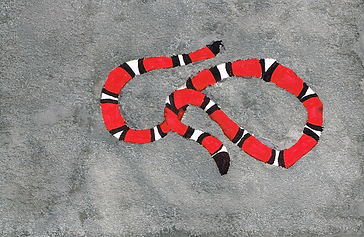
For Educators:
All About Snakes
What is this Video?
Snakes and How They Get Energy
In “Snakes and How They Get Energy,” students explore the diets and hunting methods employed by a variety of snakes, helping students to understand snakes’ crucial role in a wide variety of environments. This activity was designed to flow from reading intensive to hands-on, providing 1-3 hours of programming.
Begin by watching this documentary on snakes. Follow the video up with a short discussion on snakes.
Conversation Starters:
Ask:
- What do you think snakes eat?
- What role do you think snakes play in their environments?
- How do you think snakes hunt
Standards:
K-LS1-1. Use observations to describe patterns of what plants and animals
(including humans) need to survive.
2-LS4-1. Make observations of plants and animals to compare the diversity
of life in different habitats.
3-LS3-2. Use evidence to support the explanation that traits can be
influenced by the environment.
4-LS1-1. Construct an argument that plants and animals have internal
and external structures that function to support survival, growth,
behavior, and reproduction.
Science and Engineering Practices:
- Planning and Carrying Out Investigations
- Constructing Explanations and Designing Solutions
- Obtaining, Evaluating, and Communicating Information
Disciplinary Core Ideas:
LS1.A: Structure and Function
LS1.C: Organization and Energy Flow in Organisms
LS4.D: Biodiversity and Humans
Cross-Cutting Concepts:
- Patterns
- Structure and Function


What are snakes exactly? Join marine biologist Ryan Dumas as he explores the diet, habitat, anatomy and evolution of snakes.
The page is designed to give educators the neccessary tools to be able to guide their class through the wonderful world of snakes. Use the activities below to teach your class about the biology of these animals.




